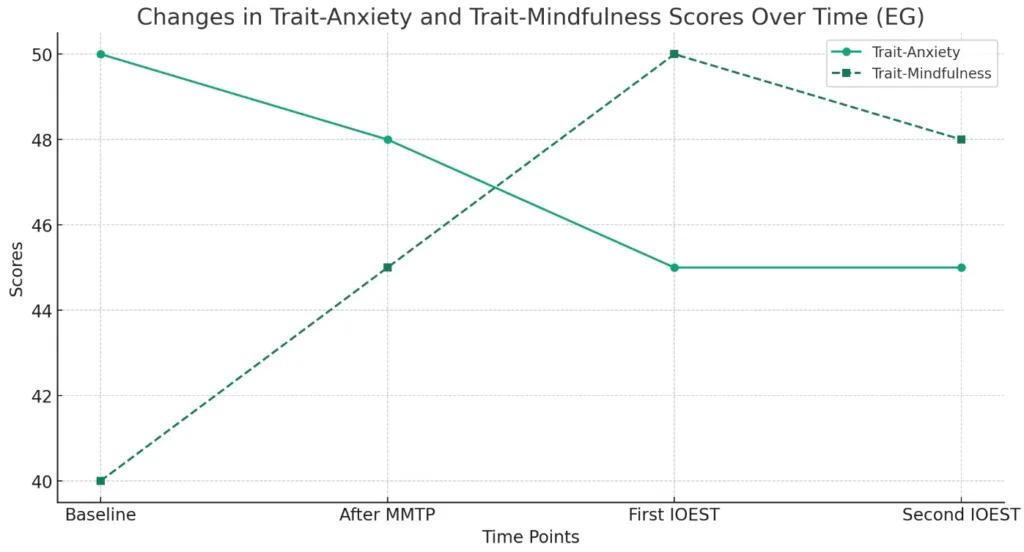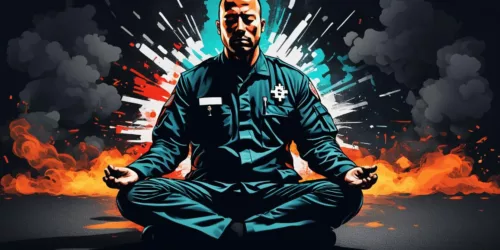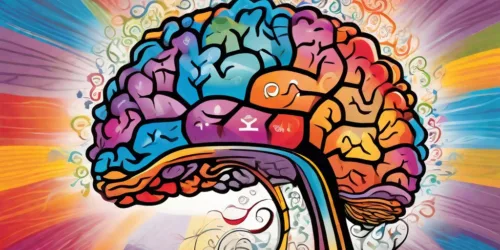How Mindfulness Meditation Enhances Teamwork and Reduces Anxiety in Emergency Simulations

Welcome to a journey where science meets serenity. In today’s fast-paced world, mindfulness has emerged not just as a buzzword but as a beacon of calm in the storm of our daily lives. It’s fascinating how this ancient practice, rooted in meditation and awareness, has woven its way into various sectors, including the demanding field of healthcare education.
Today, we delve into a groundbreaking study that shines a light on the profound impact of mindfulness meditation on reducing anxiety and enhancing teamwork among health profession students during emergency simulations.
Join us as we unpack the essence of this study, making it digestible and engaging for everyone. Whether you’re a healthcare professional, a student, or simply someone curious about the power of mindfulness, this article promises insights that could change the way you approach stress and teamwork.
The Power of Mindfulness Meditation
Understanding Mindfulness Meditation
At its core, mindfulness meditation is about being present. It’s a practice that teaches us to dwell in the current moment, to be fully engaged with whatever we’re doing without judgment or distraction. But it’s more than just a technique for relaxation; it’s a pathway to enhancing our mental, emotional, and physical well-being. The study we’re exploring today leveraged mindfulness meditation to address two critical challenges faced by health profession students during emergency simulations: anxiety and cognitive overload.
The Role of MBSR in the Study
The magic wand in this experiment was the Mindfulness-Based Stress Reduction (MBSR) program, a well-regarded protocol developed by Jon Kabat-Zinn. This program, which has been the bedrock of numerous scientific studies, was adapted to fit the needs of the study’s participants. Over a series of four weekly sessions, students engaged in a variety of mindfulness practices, including body scans, breathing exercises, and guided meditations. The goal was simple yet ambitious: to equip these future healthcare professionals with the tools to manage stress, enhance focus, and improve teamwork in high-pressure situations.
Stay tuned as we dive deeper into the study’s findings and reveal how a few moments of mindfulness can lead to significant improvements in performance and well-being.
Study Overview for a General Audience
Embarking on a journey to understand the impact of mindfulness on emergency healthcare education, a fascinating study was conducted. This wasn’t just any study; it aimed to demystify how brief sessions of mindfulness meditation could significantly reduce anxiety, lighten cognitive loads, and foster better teamwork among health profession students during high-pressure emergency simulations. Imagine being a student, thrown into a simulated emergency, your pulse racing. Now, picture the calming, steadying influence of mindfulness meditation. That’s what this study explored.
Participants, our brave students, were divided into two groups. One group, the experimental group, received mindfulness meditation training, a beacon of calm in the storm of their rigorous education. The control group went about their education as usual, sans the meditation. The study meticulously measured their anxiety levels, cognitive load (how heavy the mental effort felt), and teamwork abilities before and after the intervention, and again six months later. The goal? To see if mindfulness could be the secret ingredient to not just surviving but thriving in high-stress healthcare environments.
Visualizing the Impact: Graphs and Findings
Analyzing Anxiety, Cognitive Load, and Teamwork Through Graphs
The results were eye-opening and best understood through vivid graphs that painted a clear picture of the study’s outcomes. A bar graph comparing the mean scores for state-anxiety, cognitive load, and teamwork between the experimental and control groups revealed something remarkable.

Those who practiced mindfulness meditation showed significantly lower anxiety levels and improved their ability to manage cognitive load. Their teamwork scores soared, illustrating that a calm mind fosters better collaboration.
Observing Long-term Changes in Anxiety and Mindfulness
A line graph tracing the changes in trait-anxiety and trait-mindfulness scores over time added another layer to the story. It showed that the benefits of mindfulness meditation weren’t fleeting; they had a lasting impact on the participants.

This wasn’t just about doing better in simulations; it was about fundamentally changing how students coped with stress, enhancing their resilience, and equipping them with skills that would benefit them far beyond their education.
Enhancing Emergency Healthcare Education
The implications of this study stretch far beyond the classroom or simulation lab. They touch on a crucial aspect of emergency healthcare education: preparing students not just technically but emotionally for the challenges ahead. Integrating mindfulness meditation into the curriculum could revolutionize the way future healthcare professionals are trained. By reducing anxiety and enhancing teamwork, mindfulness meditation equips students to handle emergencies with a clearer mind and a steadier hand. Imagine the potential improvements in patient care when healthcare professionals can manage their stress and work more cohesively as a team.
Implementing Mindfulness in Daily Life
So, how can you incorporate mindfulness into your daily routine? Whether you’re a student, a professional, or simply someone looking to find a bit more calm in the chaos of daily life, here are a few tips:
- Start small: Begin with just a few minutes of meditation each day. There are plenty of apps and online resources to guide you.
- Focus on your breath: Whenever you feel overwhelmed, take a moment to focus solely on your breathing. It’s a simple but powerful way to bring your attention back to the present.
- Make it a habit: Try to meditate at the same time every day. Consistency helps to build and reinforce this beneficial practice.
- Be kind to yourself: Mindfulness is a skill that takes time to develop. Don’t get discouraged by distractions or days when meditation feels particularly challenging.
Conclusion: Mindfulness in Professional and Personal Life
The results of this study highlight the transformative power of mindfulness meditation, not only in professional settings like healthcare education but in our personal lives as well. By learning to manage anxiety and improve teamwork, we can face the challenges of our daily lives with greater calm and resilience. The skills developed through mindfulness meditation—focusing on the present, acknowledging thoughts without judgment, and returning to the task at hand—can improve our overall well-being and quality of life.
Engage with Mindfulness: A Call to Action
We invite you to share your experiences with mindfulness or to embark on your mindfulness journey today. Whether it’s through commenting below, joining a community mindfulness session, or simply dedicating a few minutes each day to meditation, there’s a place for everyone in the world of mindfulness. At calmegg.com, we’re here to support you on this journey, offering resources, inspiration, and a community of like-minded individuals. Let’s embrace mindfulness together, enhancing our lives and the lives of those around us.






